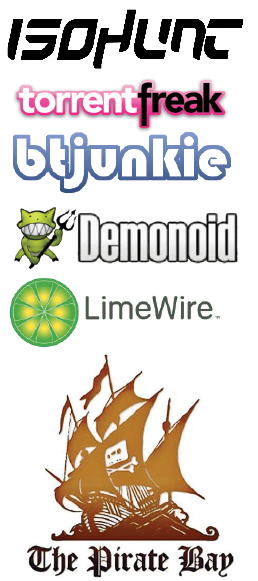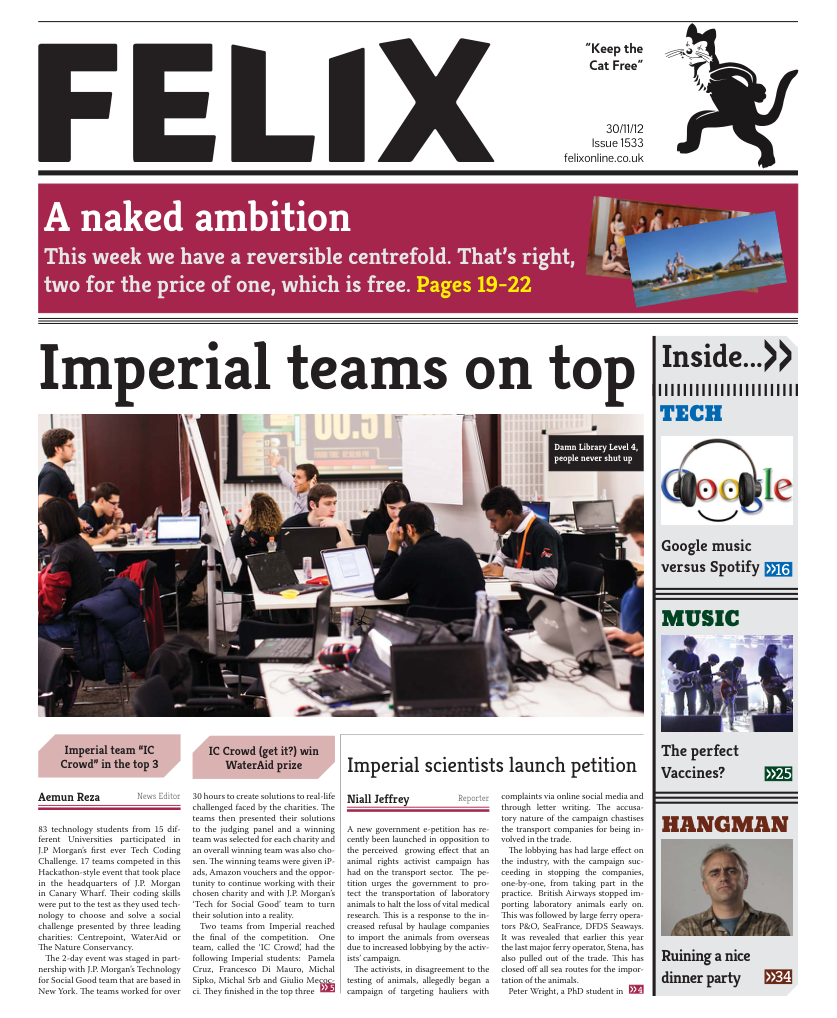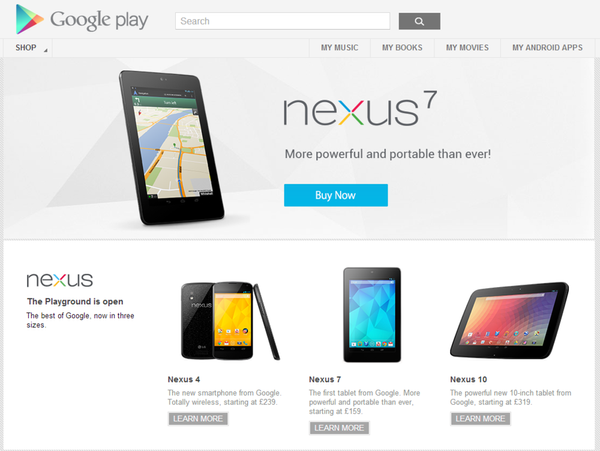Illegal downloading, that's oldschool
Has the market, giving consumers better deals, reduced illegal torrenting?

Writing the previous article on Google Music’s introduction to the UK market reminded me of an interesting question that I’ve been asking myself for a while, “has the progress in the digital music market, which gives consumers a better deal, reduced the amount we illegal download?” I think that Google and Spotify have the potential to enjoy a rich future in the music industry, and I’m sure their competitors will follow in their footsteps in what is now a very fast moving and dynamic market. However, has all of this progress actually helped the efficiency of music distribution, helped consumers, helped the musicians and/or helped reduce illegal downloading.
Background
Back in the very late 90’s-early noughties, many people, especially young people, couldn’t always afford to buy the expensively priced CD’s. So many took advantage of easy-to-use illegal P2P services such as Napster or LimeWire (to name just a few). Napster, which was co-founded in 1999 by all round badass and Facebook foundering president Sean Parker (played by Justin Timberlake in “The Social Network”), was the main site of choice for many and is associated with bringing “the recording industry to its knees”, albeit like a slow poison. But one thing the P2P services did was to encourage and move people to digital music, and in doing so, Apple, in 2001, released the iTunes store and made an absolute mint for record labels, musicians (to an extent) and cut costs for consumers.
Apple, in 2001, released the iTunes store and made an absolute mint for record labels
Although some people continued and took up illegally downloading, many moved to legal online music services. One decade on and we’ve seen a huge increase in uptake of legal downloading and streaming, most prominently for Spotify here in the UK and perhaps in the future Google Music as well as Apple, Amazon, Sony, Microsoft, YouTube and borderline legal services of Grooveshark & Hypem.
Illegal downloading down?
There are several conflicting sources of illegal music downloading and the market circulating around the internet. However, one of the most reliable to consider is that of MusicMetric, who conducted “one of the most comprehensive studies of unauthorized music downloads to date”. The young company was founded in 2007 by, believe it or not, an Imperial College Physics student in his final year with two friends from Exeter and UCL (urgh). They actually secured their first ever investment in the Felix Office where this paper is produced, as the current CEO, Gregory Mead was a Felix writer. Moving on, the company who is regarded as the “world’s largest music trend data asset” study reveals that there has been a drop in unauthorised music downloads in the UK, US, Canada, Sweden and Norway.
there has been a drop in unauthorised music downloads in the UK, US, Canada, Sweden and Norway.
These are reductions in illegal downloading are being strongly linked with online streaming services such as Spotify, who as previously stated, were valued at $3 billion by Goldman Sachs this month and are predicted to earn over $1 billion this year worldwide. My straw polling of Imperial students (which of course are highly reliable and accurate) appear to agree too. Over the last four years I’ve been here I’ve definitely noticed an increase in the amount of people using legal music services and illegally downloading less. Although there has been a 16% drop in UK spending in music, compared with 2.6% globally, people’s access to music is still increasing and is evidence that the market has innovated into new revenue and efficiency streams. By offering consumers lower prices for services that allow them to listen to even more music, more conveniently and with better interfaces they have increased their client base. In addition by doing this online, they have slashed billions of dollars in distribution costs that can now be reinvested into providing better services and lower prices for consumers. This is what Napster over a decade ago predicted would happen, it just took longer than expected, with the recording labels lasting an impressively long time before slowly dying or innovating. President of the American Association of Independent Music (AAIA), Rich Bengloff, says “providing alternatives to illegal file sharing and downloading is a “no-brainer”” and “pricing it at a level that is attractive enough to them that they don’t want to pirate music”. Google appear to agree with a representative of Google Music saying “I think [the service] is something that is hopefully going to make piracy obsolete because it’s so easy to operate within the bounds of the law that there is really no need to go beyond them”. As does ARIA CEO Dan Rosen who says “new digital music services certainly assist with reducing music piracy” and that “with almost all music now being available for free or at a low cost, there is no justification for any music fan to use pirate sites where no money go to artists or labels”.
it’s [now] so easy to operate within the bounds of the law there is no need to go beyond them
To summarise, there appears to be an interesting (and very obvious) link between the market offering competitively priced alternatives to illegal downloading and then seeing a reduction in illegal downloading. Although, not all agree. Some think aggressive government interventions are the way forward. That’s certainly the opinion of Joshua Friedlander who evaluates data for AAIA, who claims “there was an immediate increase in digital music sales (after LimeWire was removed), so whenever one of these sites closes, we’re definitely moving some people on to the many legal services that are now available”. So in truth, it’s a mixture of the two that’s resulted in a reduction in illegal downloading, for music at least. The conclusion I want to make with this article is that I don’t think it’ll be long, and I hope it’s not, until we see more online digital markets move in this direction. We’re already seeing it, for example, with TV and film. Netflix and LoveFilm are the two biggest players at the moment, and their competition is helping to drive down prices and increase the ease of usability for consumers.
competition is helping to drive down prices and increase the ease of usability for consumers
This has encouraged millions more people to subscribe to their services, stop renting from inefficient tangible based services such as Blockbuster and slightly reduce illegally downloading. I’m also, it won’t be long until the PC games industry follows suit, with Steam looking to take the lead as the promising OnLive service unfortunately grew too fast too quickly and failed (being valued at $1.8 billion and being sold for under $5 million in the space of a year). The most interesting market to follow though, will be that of the Software giants. Who knows, in a few years’ time we may all be not ever have to pay a one-off fee for software and instead just pay annual subscriptions to Microsoft, Apple, Adobe etc. for the latest software (and maybe even hardware) instead of relying on cheap student deals or, what more regularly happens, “borrowing” a copy from the internet.
Too Long Didn't Read (TLDR)
Illegal music downloading is reducing as prices go down and services go up
Illegal music downloading is reducing as prices go down and services go up (YES capitalism, YES markets). Other industries should learn and innovate to prevent and finally kill illegal downloading. TV & Film is underway with NetFlix and LoveFilm, eBooks are well on their way, Gaming tried and failed (poor OnLive) but should keep going and the Software should start offering just subscription, high value-for-money and more efficient business models to benefit consumers (i.e. Microsoft, Adobe,









